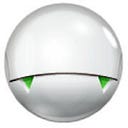René Descartes talked about the method of reasoning(the method of Science at that time) in his book Discourse on the Method in 1637:
1. Doubt everything.
“The first of these was to accept nothing as true which I did not clearly recognize to be so: that is to say, carefully to avoid haste and prejudice in judgments, and to accept in them nothing more than what was presented to my mind so clearly and distinctly that I could have no occasion to doubt it.2. Break every problem into smaller parts.
“The second was to divide up each of the difficulties which I examined into as many parts as possible, and as seemed requisite in order that it might be resolved in the best manner possible.3. Solve the simplest problems first.
“The third was to carry on my reflections in due order, commencing with objects that were the most simple and easy to understand, in order to rise little by little, or by degrees, to knowledge of the most complex, assuming an order, even if a fictitious one, among those which do not follow a natural sequence relatively to one another.4. Be thorough.
“The last was in all cases to make enumerations so complete and reviews so general that I should be certain of having omitted nothing.”
But in this method, still very easy to argue about “what is science?”, so Karl Popper in his 1934 book The Logic of Scientific Discovery proposed another method called falsifiability:
As a key notion in the separation of science from non-science and pseudoscience, falsifiability has featured prominently in many scientific controversies and applications.
